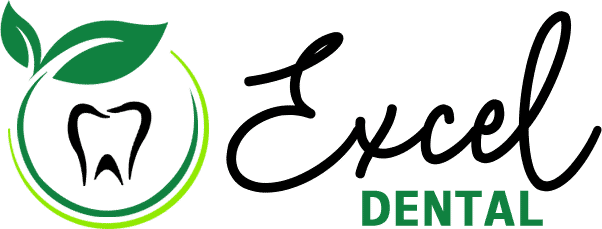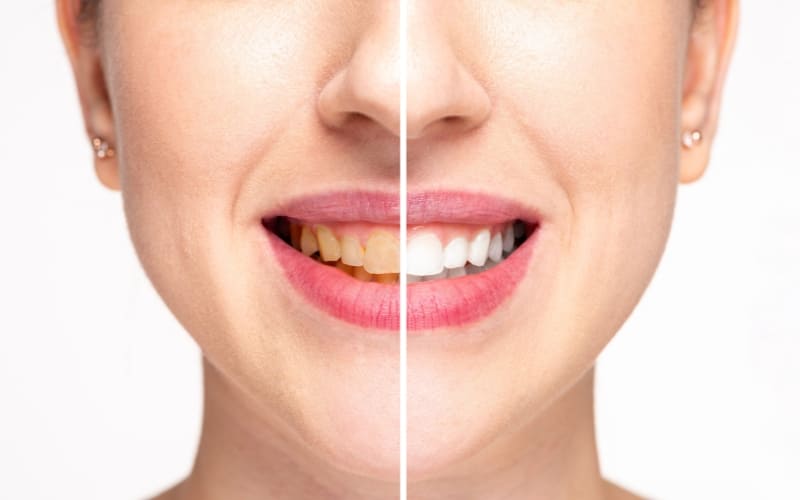In recent years, teeth whitening has become a widespread desire, with more people seeking that perfect, pearly white smile. While professional treatments are popular, there’s been a significant rise in DIY methods that promise similar results from the comfort of your home. One common home remedy that has garnered attention is the use of hydrogen peroxide for teeth whitening. This simple ingredient, found in many household products, is now a subject of debate. Is it a safe and effective way to brighten your teeth, or does it come with hidden risks? Let’s delve into the discussion surrounding hydrogen peroxide for teeth whitening and uncover the facts.
Can Hydrogen Peroxide Whiten Teeth?
Hydrogen peroxide works as a teeth-whitening agent due to its powerful bleaching properties. When applied to teeth, hydrogen peroxide penetrates the enamel and dentin, breaking down complex molecules that cause discoloration and stains. This chemical reaction releases oxygen molecules, which oxidize the stains, making them less visible and resulting in a whiter appearance.
This bleaching effect is why hydrogen peroxide is a key ingredient in many commercial whitening products, such as whitening strips, gels, and toothpaste. These products often contain hydrogen peroxide at varying concentrations, providing a range of whitening options validated by dental professionals. The widespread use of hydrogen peroxide in these products underscores its effectiveness in teeth whitening, making it a popular choice for those seeking a brighter smile.
Safety Concerns of Using Hydrogen Peroxide for Teeth Whitening
1. Enamel Damage: Hydrogen peroxide, particularly in high concentrations or with prolonged use, can weaken tooth enamel. This may lead to increased susceptibility to decay, erosion, and sensitivity due to the disruption of enamel structure.
2. Gum Irritation: Direct contact with hydrogen peroxide can irritate the gums, resulting in inflammation, redness, and discomfort. Improper application or high concentrations can exacerbate this risk, potentially leading to gum damage or recession.
3. Tooth Sensitivity: Some individuals may experience heightened tooth sensitivity after using hydrogen peroxide-based whitening products. This sensitivity can manifest as discomfort in response to hot, cold, or acidic stimuli and may persist for a period after treatment.
4. Chemical Burns: The use of high concentrations of hydrogen peroxide, often found in industrial or hair-bleaching products, can cause chemical burns if it comes into contact with the skin or soft tissues of the mouth. This can lead to pain, blistering, and potentially permanent damage.
5. Risk of Misuse: Without proper guidance and supervision, there is a risk of misuse of hydrogen peroxide for teeth whitening. Using incorrect concentrations, overusing the product, or failing to follow instructions can increase the likelihood of adverse effects and compromise dental health.
Alternatives to Hydrogen Peroxide Whitening
1. Baking Soda: Baking soda, or sodium bicarbonate, is a mild abrasive that can help remove surface stains from teeth. It works by scrubbing away plaque and surface discoloration, resulting in a brighter smile. However, it’s important to use baking soda sparingly to avoid enamel damage.
2. Activated Charcoal: Activated charcoal is known for its absorbent properties, which can help lift stains from the surface of teeth. It’s available in various forms, including toothpaste and powder. While there is limited scientific evidence supporting its effectiveness, many people report positive results with activated charcoal whitening products.
3. Whitening Toothpaste: Whitening toothpaste contains abrasive particles and chemical agents designed to remove surface stains and lighten tooth color over time. These toothpaste are typically safe for daily use and can complement professional whitening treatments or maintain results achieved through other methods.
4. Strawberries and Baking Soda Paste: A mixture of mashed strawberries and baking soda can act as a natural whitening agent. Strawberries contain malic acid, which may help break down surface stains while baking soda gently polishes teeth. However, this method should be used sparingly to prevent enamel erosion.
5. Professional Whitening Treatments: For individuals seeking more significant whitening results or with specific dental concerns, professional whitening treatments performed by a dentist offer a safe and effective option. These treatments may involve in-office procedures using light-activated whitening gels or take-home kits customized to individual needs.
Wrap Up!
In summary, while hydrogen peroxide has significant whitening potential, it’s essential to consider the associated safety risks, including potential enamel damage, gum irritation, and tooth sensitivity. Consulting a dentist before embarking on at-home whitening can help ensure a safe and effective treatment plan tailored to individual dental health needs.
Additionally, adopting good brushing habits, such as regular brushing with a whitening toothpaste, and avoiding staining foods and beverages can help maintain a brighter smile over time.
For personalized guidance and professional care, visit Dentist Missouri City today and take the first step towards achieving a beautiful smile safely!


